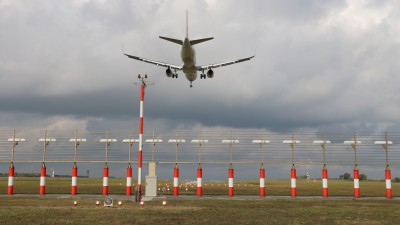Austro Control has managed to develop a remarkable success story out of this challenge by adopting a pioneer role in the implementation of highly innovative instrument flight procedures. Some examples are one of the world’s first RNP-AR (Required Navigation Performance with Authorization Required) and PBN/conventional hybrid (Localizer to RNP) approaches to Innsbruck international airport in 2005 and 2013, respectively.
In 2018, this success story went on with the publication of the first precision approach based uniquely on augmented satellite navigation systems (SBAS) at the same airport. The three-dimensional flight guidance provided by EGNOS is comparable to that of a conventional ILS CAT I but without some of its drawbacks. A thorough signal analysis, flight procedure design and validation proved essential to exceed the initial objectives and expectations. This implementation was possible thanks to the collaboration between the German Aerospace Centre (DLR - Deutsches Zentrum für Luft- und Raumfahrt) and Austro Control in the frame of a EU project called IMPROWE, funded by the European GNSS Agency (GSA). The project had its kick-off in 2015 and aimed at boosting the adoption of GNSS procedures based on the European Geostationary Navigation Overlay Service (EGNOS) in the field of the civil air transportation as well as to increase operational safety and all-weather accessibility. The involvement and contributions of the whole ACG IFP design team as well as the ATS Unit Innsbruck among many other stakeholders from the early stages of the project played a crucial role in achieving the highest safety and efficiency levels while reducing the environmental impact of this innovative instrument approach procedure.
Carlos Gonzaga-Lopez, Senior IFP expert and Florian Michael Buchmann, Manager IFP at Austro Control, have recently published a paper about this achievement in the Journal of Air Transportation of the American Institute of Aeronautics and Astronautics (AIAA) along with the project team from the DLR. This scientific-technical journal is devoted to the dissemination of new developments in air traffic management and aviation operations worldwide.
This paper complements previous work and publications by the IFP team on flight procedure design in mountainous areas and places Austro Control at the forefront in this area.
Read the paper:
https://arc.aiaa.org/doi/10.2514/1.D0155
Tue 06.10.2020



